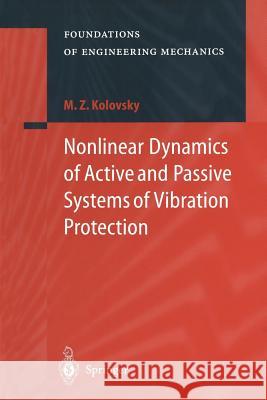Nonlinear Dynamics of Active and Passive Systems of Vibration Protection » książka
Nonlinear Dynamics of Active and Passive Systems of Vibration Protection
ISBN-13: 9783662222362 / Angielski / Miękka / 2013 / 429 str.
With progress in technology, the problem of protecting human-beings, ma chines and technological processes from >Ources of vibration and impact has become of utmost importance. Traditional "classical" methods of pro tection, based upon utilising elastic passive and dissipative elements, turn out to be inefficient in many situations and can not completely satisfy the complex and often contradictory claims imposed on modern vibration protection systems which must provide high performance at minimum di mensions. For these reasons, active vibration protection systems, which are actually systems of automatic control with independent power sources, are widely used nowadays. Appearing and developing active systems require that traditional ap proaches to the analysis and synthesis of vibration protection systems must be revised. Firstly, there exists the necessity to re-state the problem of vi bration protection from mechanical actions as an equivalent problem in closed-loop control systems design, which is to be solved by the methods of control theory. Furthermore, it turns out that certain inherent proper ties of active systems must be taken into account for a proper design. In the majority of cases, the dynamic models of the objects to be protected and the bases to which these objects are to be attached must be revised. They are no longer considered as rigid bodies but elastic bodies with weak dissipation."











